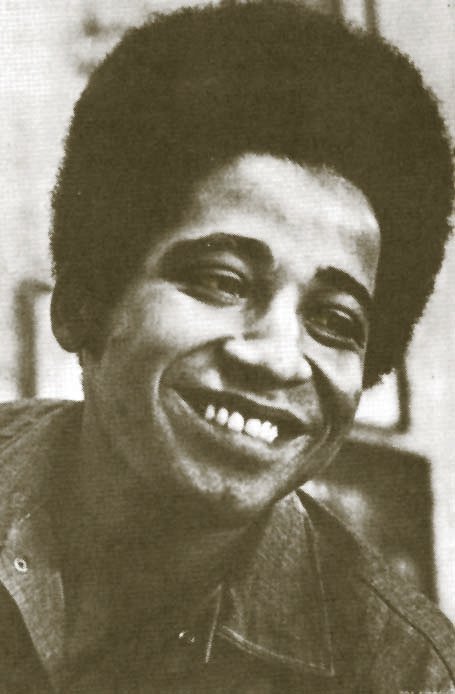

George Jackson, 1971
In a 3 a.m. raid July 20, approximately 200 Black prisoners at California’s Soledad state prison were violently taken from their cells with nothing on but their boxer shorts.
The men were herded into the chow hall, handcuffed with zip ties and forced to sit shoulder-to-shoulder without masks for hours, while their cells were ransacked. Their property, including books, letters and legal papers, was confiscated or destroyed.
Guards brutalized and beat many prisoners, including Talib Williams, whose spouse Tasha Williams has written several extensive articles about this racist cell extraction for a national Black newspaper, the San Francisco Bay View. (tinyurl.com/y47mhuo8) He told her that prison guards were shouting, “Black Lives Don’t Matter” and calling the prisoners the N-word. An elderly prisoner was tossed down a flight of stairs.
Talib Williams, in prison for 18 years (since he was 17 years old), has spent the last six years at Soledad and has published four books. His most recent was on the racist and violent history of Soledad prison toward Black prisoner organizers like George Jackson. According to Tasha Williams, the guards seized much of his library, including works of Jackson and Black revolutionaries and a list he compiled of Jackson quotes.
George Jackson’s legacy
George Jackson, 1971
On Jan. 13, 1970, a group of Black and white Soledad prisoners were released to the exercise yard, which provoked a fist fight. A white guard marksman shot and killed three Black prisoners. Black prisoners started a hunger strike in protest; a grand jury exonerated the guard
One week later, a white prison guard was killed and three prisoner leaders — George Jackson, Fleeta Drumgo and John Wesley — were charged with murder and became known as the Soledad Brothers. A broad defense committee came forward, and Jackson published his famous work, “Soledad Brother: The Prison Letters of George Jackson
The California prison system and especially Soledad prison — notorious for violence against Black prisoners — hate George Jackson, his writings and his legacy.
Tasha Williams, who heard firsthand accounts of the violent attack from several Soledad prisoners, said prison officials claimed they were investigating gang activity. Talib noted that he saw a piece of paper about his father being in the Black Panther Party
Most of the Black prisoners have no prior gang affiliation. That is often used as an excuse to attack incarcerated people who speak out, advocate for others and fight the system. Several of the prisoners reported being questioned about the Black Lives Matter movement and being asked if they were BLM members
Tasha Williams believes the violent cell extraction was carried out to intimidate Black prisoners. In an interview with this reporter, she said, “Officials were trying to incite them into a riot. This was a targeted hit job. The men were blindsided. They weren’t organizing anything. There was nothing going on. They told my husband if he sagged his pants under his ass and had less books in his cell, he wouldn’t be bothered. My husband and the others are not going to play that game.”
Williams is asking people to spread the word and mobilize support for the people inside. (San Francisco Bay View, July 20 and 22)
The epic struggle of the Palestinian people against the full weight of U.S. imperialism and…
The following report comes from the Bronx Anti-War Coalition organizers on a protest held in…
In the Canadian federal elections held on April 28, the Liberals won with 169 seats…
The following is Part 2 of a talk given by the author to a meeting…
Boston Students, professors and workers are confronting the Trump administration’s fascist crackdown at universities across…
Philadelphia Within days of Swarthmore students reviving a pro-Palestinian encampment on April 30, police arrested…